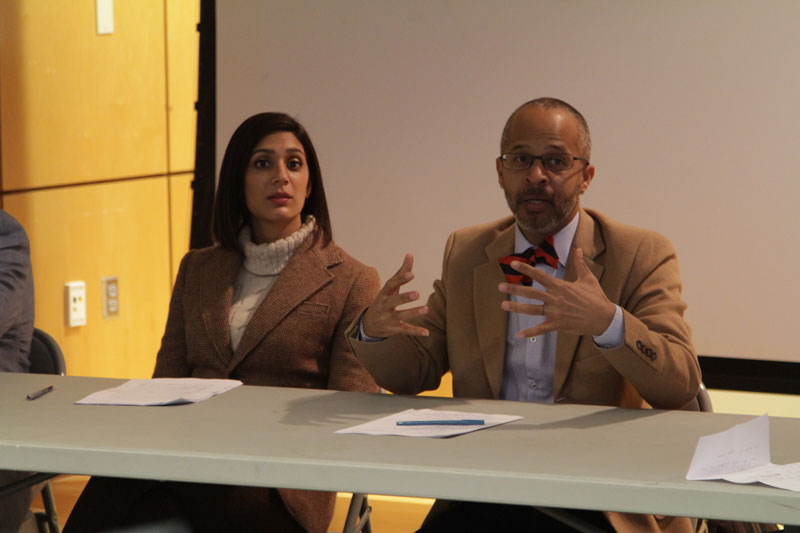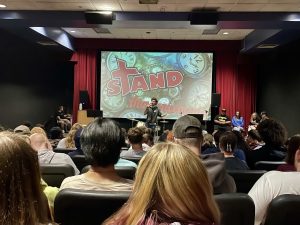Academic Reflections on Race and Color Panel Discussion
February 26, 2016
As California University of Pennsylvania nears the end of its 2016 celebration of Black History Month, Rueben Brock, a professor of psychology at Cal U, spoke not only of the psychological aspect of race, but of a famous 19th century black academic and author.
That famous black author was none other than W.E.B. Du Bois in the book “The Souls of Black Folk.” “I encourage everyone in this room to read that book, no matter who you are,” Brock said.
In that book, Du Bois spoke of a double consciousness, being black and being American. Brock reviewed that they were warring ideas. Du Bous’s publication came just 40 years after slavery was abolished, according to Brock. Brock also said that former slaves were given their acreage of land and their reparations at the time.
“A major theme here is progress, and then retreat in America,” Brock said. “In American history, it happens again and again.”
Fast forward to the 1950s, and some progress followed. Thurgood Marshall was nominated for a seat as the first black Supreme Court justice. Black psychology came into play much stronger this time, after the court case Brown v. Board of Education became a victory in 1954.
In the 1960s, black psychology emerged as a discipline. According to Brock, black psychologist Joe White “ascended on the APA [American Psychological Association] conference.” White demanded equality, which is exactly what Du Bois argued for 60 years earlier. The black community still struggled with income disparity, healthcare, and other issues even to the end of 20th century.
Brock concludes his discussion with these views: “While the situation has alleviated some, we are still fighting the same basic battle, long after slavery ended.”
Another speaker was Gabby Yearwood, a professor of anthropology at the University of Pittsburgh. Yearwood spoke of the basic human idea of placing people into types. He referred to it as the typology of humanity. He said that people do this every day.
Mentioned teachers Mendel and Linnaeus studied this from a genetic perspective. He also spoke of the Nazi Germany eugenics movement, where women were deemed “fit” or “unfit” by their extremist government to reproduce. This situation also was very tied to race in a number of cases, Yearwood said.
Typology became more pronounced by the strong increase of immigration. As social groups relocated, they were taken advantage of, and in some cases committed genocide against.
Pigmentation of skin color is scientifically linked to one’s adjustment to the environment, according to Yearwood. Yearwood ended his discussion with, “how white is ‘white’ and how black is ‘black’?”
Komal Dhillon, a professor in the religion and culture department at Virginia Tech spoke on “the whitening of Bollywood.” Bollywood is an industry with 14 million moviegoers per day, according to Dhillon.
In Indian culture, lighter skin is favored culturally in India. Often, darker-skinned characters play the villain. “There are stereotypes with skin color in India as well,” Dhillon said. To remedy this, people sometimes use artificial skin-lighteners to make them appear more attractive.
Artificial skin-changer allows for better jobs, relationships, and a better opportunity to get married. Skin-lighteners are much unregulated from a business perspective in India, according to Dhillon.There is even a Facebook app that people use before posting pics of himself or herself in India.
Indian companies use part-white models to advertise lighter, more “attractive” people as well, Dhillon said.
Ambrus Price, Cal U professor of political science, asked where the white person came from. He spoke of the matter on that the human race’s beginnings have been linked to Africa. Price did not cite any sources to that suggestion, however.
“Blacks really have no nation to back themselves up with when we are attacked,” Price passionately said. “The white man has a nation of white people, but what would countries like Congo or Nigeria do,” Price said.
“They won’t do anything, and that is why we need to stick together,” he said.







